Essays
Nikkō’s a Real Trip
Matías Ariel Chiappe Ippolito
translated by Andrea Rosenberg
日々旅にして旅を栖とす。
(松尾芭蕉)
“Every day is a journey, and the journey itself is home.”
–Matsuo Bashō, tr. Sam Hamill
I’d been told I should get in touch with Hideki, whom everybody calls “the sensei.” I thought I was prepared for my visit to the city of Nikkō—I’d asked a number of people and looked at a bunch of websites; I’d even acquired a tourism pamphlet about Tochigi Prefecture that I hadn’t gotten a chance to read yet. I knew about the surrounding area: Kegon Falls, the Shinkyo Bridge, Mount Nantai. I knew that the main attraction was the Rinnoji Temple and the shrines of Futarasan and Toshogu, the latter of which houses the tomb of Ieyasu Tokugawa, the first shogun of the Edo period. I knew I was about to … Read More »
Argentina and Uruguay (excerpt)
Lucas Mertehikian
We don’t know much about Gordon Ross. We don’t know how long he lived in Buenos Aires nor where exactly he had come from. The first pages of his book Argentina and Uruguay only tell us that he served as an official translator for the Fourth Congress of the American Republics, held in 1910, and as a financial editor for The Standard, a journal addressed to the English-speaking community of Buenos Aires, first published in May of 1861 as The Weekly Standard and which kept coming out, with slightly different titles, until 1959. The editors had made their initial statement in the first issue of 1861: “The Weekly Standard in unfurled to the four winds of heaven, not as the emblem of a party or the watchword of rivalry, but as the bond of fellowship between the … Read More »
Travelers to Buenos Aires
Lucas Mertehikian
translated by Jennifer Croft
The history of the Americas has always been inseparable from the notion of travel, and Argentina is no exception to this rule. In fact, the history of Argentina’s literature can only be understood in connection with the men and women who arrived at its shores from far-off lands and wrote about that very experience.
No sooner had Argentina declared its independence than it began to see travelers—many of them from Great Britain—looking to try their luck and explore the commercial prospects of the new nation. The country’s vast plans captivated this multitude of newcomers who, with their aesthetic sensibilities that tended to fall somewhere in between the naturalism and the romanticism of the era, documented this astonishment in numerous books.
Adolfo Prieto has suggested that it was those books that led the first writers … Read More »
The Amazing Argentine [excerpt]
John Foster Fraser
Lucas Mertehikian
translated by Jennifer Croft
In 1899, Scottish writer John Foster Fraser (1868-1936) made a name for himself in Great Britain with his book Round the World on a Wheel, the result of a bicycle trip made with two friends across over ten thousand miles of Europe, Asia and the United States. Unlike other books dedicated to travel, Foster Fraser’s book was not “about anthropology or biology or archaeology.” He made no claims to studying the places he went—only claims to fame: “We took this trip round the world on bicycles because we are more or less conceited, like to be talked about, and see our names in the newspapers,” he states in the preface.
And it worked: over the course of the next few decades, Foster Fraser traveled to and wrote about young … Read More »
On Luna Paiva’s “Memorias Herméticas”
Andrew Berardini
Even if the meaning of ancient totems disappeared, their meaningfulness has not. A human hand altering nature with purpose, these ancient stacks of stones mark a path or honor a god, measure the stars or memorialize war. We can’t really know for sure. Stand in the shadow of a megalith and you feel its force, an ancient energy still at work, blunted by our ignorance but no less powerful in its shifted mass. We know it means something important, even if we’ll never know precisely what. In stone cairns scattered across a planet, we find evidence of our ancestors, a simple shape we still make in the few wildernesses we have left. It is a basis of communication and expression with material, the beginning of sculpture.
Here these sculptures stacked by Luna Paiva angle with their own obscure … Read More »
The Forgotten Sense (fragment)
Pablo Maurette
translated by Andrea Rosenberg
In the winter of 1904–1905, in Beijing, a bodyguard named Fuzhuli was accused of killing his master, a Mongol prince, with a butcher knife. The punishment set forth by the Qing code[1] for crimes of such a serious nature (regicide, patricide, matricide, and other “enormicides”) was the infamous execution by lingchi, which had been practiced in China since the time of the Liao dynasty (tenth century). Lingchi, commonly translated as “death by a thousand cuts,” consisted of tying the condemned man to a post and cutting him into pieces. On that winter morning in the Beijing vegetable market, before a silent crowd, the executioner began carving large slices of flesh off Fuzhuli’s chest, biceps, and thighs; then cut off his limbs; and finally decapitated him. Once the process was over, the executioner … Read More »
Mario Bellatin: Doubles and Outtakes
Craig Epplin
Y el eco es anterior a las voces que lo producen.
—Nicanor Parra
The title of Mario Bellatin’s 2008 biography of Frida Kahlo, Las dos Fridas, is unsurprising, obvious even; of all her paintings, Bellatin chooses one whose resonance with his own literature is unmistakable. Unmistakable because everything in his work seems at once doubled and modified, his endless self-portraits mapping a landscape of dissemination. The name Mario Bellatin, or more often mario bellatin, proliferates, attaching fleetingly to any sort of body, young or old, male or female. One of his most recent books, Disecado (2011), follows the model of a Baroque painting (as Federico Zamora aptly puts it), detailing a somnolent encounter between the narrator and a phantasm of himself. The book feels like an expansive fresco of the literary life of the author, … Read More »
On Mario Bellatin
Edmundo Paz Soldán
translated by Sarah Bruni
Fifteen years ago or so, I traveled to Lima in search of a shaman who would free me from the ghost of a dead friend. The friend had killed himself, and his ghost, or what I thought was his ghost, appeared to me every night. Lima, they said, was the solution, so I went. The shaman was dressed in black, wore military boots, was bald and missing his right arm. His name was Mario Bellatin and he went everywhere with his dogs. He was also a writer. He told me he wrote novels, though genres were actually rather blurred for him. He wanted to reach a point where he would be free to just to write books. In the first therapy session he asked me to write for an hour. About … Read More »
The Marquise was Never Content to Stay at Home
Sergio Pitol
translated by George Henson
For Margo Glantz
A feeling of disaster is haunting the world. The novel records it and, in doing so, is resplendent. The more rotten it smells in Denmark—and today Denmark seems to be a large part of the universe—the more indispensable the novel becomes. Ultima Thule: a reflection of an indomitable impulse to survive, of the preservation of form over chaos, sacrifice over apathy, spirit over unformed matter—the novel is that and more. Fueled by extreme tensions, witness to violent upheavals, nourished at times by caviar and quail and other times by carrion, it reappears on the international stage today with enviable health. It blooms with a fullness that roses would envy. Behold it: protean, generous, bold, ubiquitous, skeptical, cheeky, and unmanageable. Each crisis of society causes it to regenerate. When necessary, it sheds its … Read More »
Passages: My Art as an Everything
Natalia Brizuela on Nuno Ramos
translated by Andrea Rosenberg
“No sé.” “I don’t know.” That’s the response Tintin and Captain Haddock get from the inhabitants of the Andean country—vaguely reminiscent of Peru—where they’ve traveled in search of their friend, Professor Calculus, who has been kidnapped and taken there by the last descendants of the Incas. Whenever Tintin and Haddock encounter someone—all of them with indigenous features—and ask if they’ve seen their friend, the natives respond, “I don’t know.” That “I don’t know” is the resistance of the colonial subject. That negation is the power of the powerless: “You can arrest me, you can interrogate me, you can torture me, you can exterminate my people, but you can’t make me talk.” Today the phrase arrives on the shores of the Río de la Plata in the form of an embodied echo: … Read More »

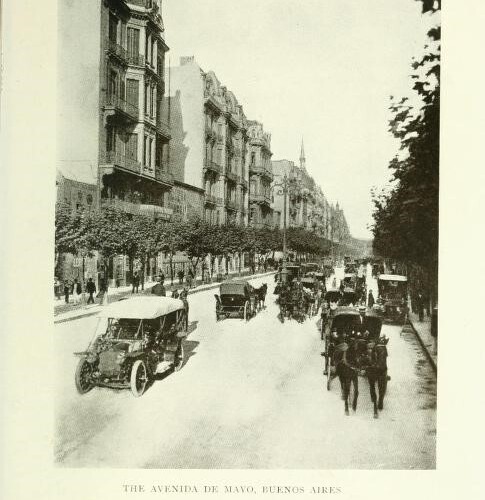
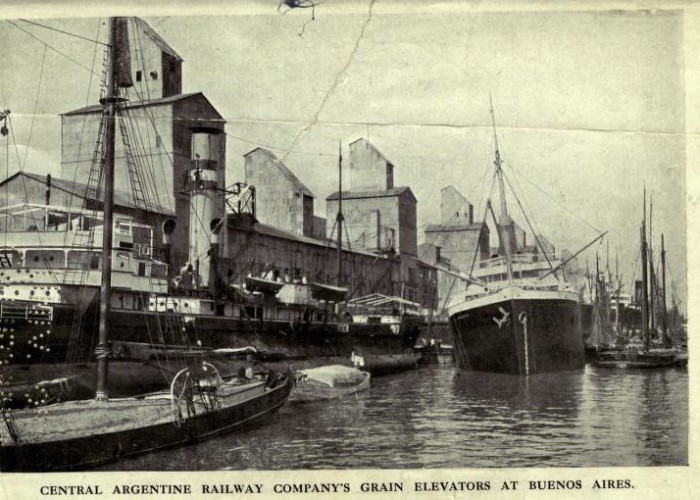
![The Amazing Argentine [excerpt]](http://www.buenosairesreview.org/wp-content/uploads/amazingargentine00frasrich_0037-700x500.jpg)
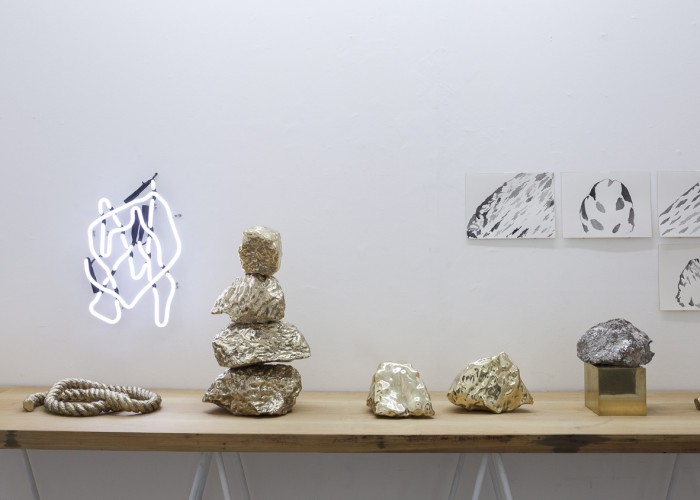
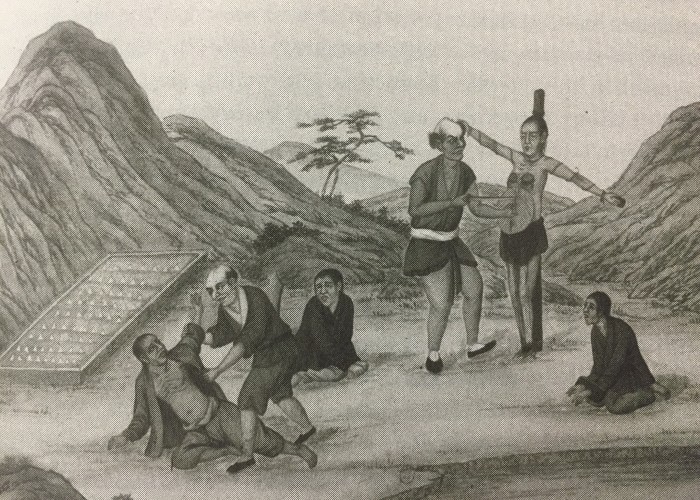
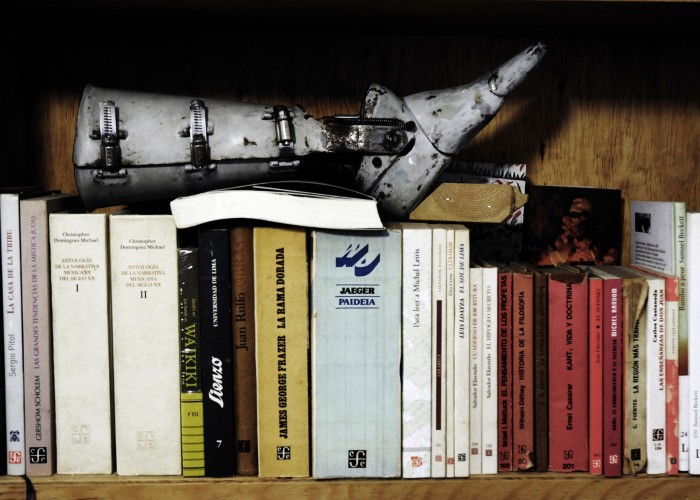
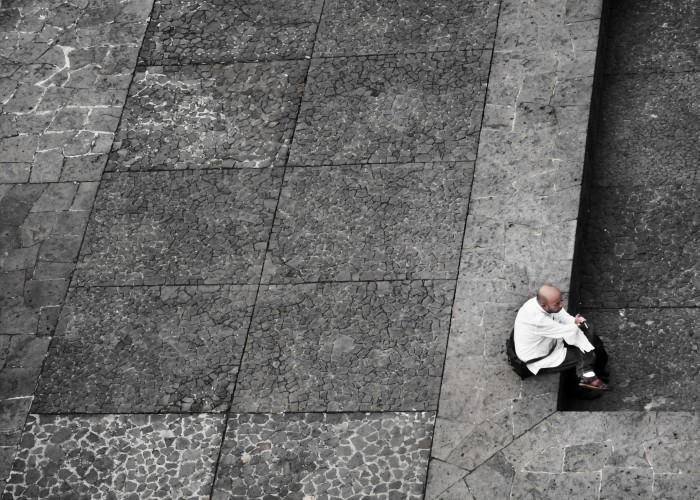
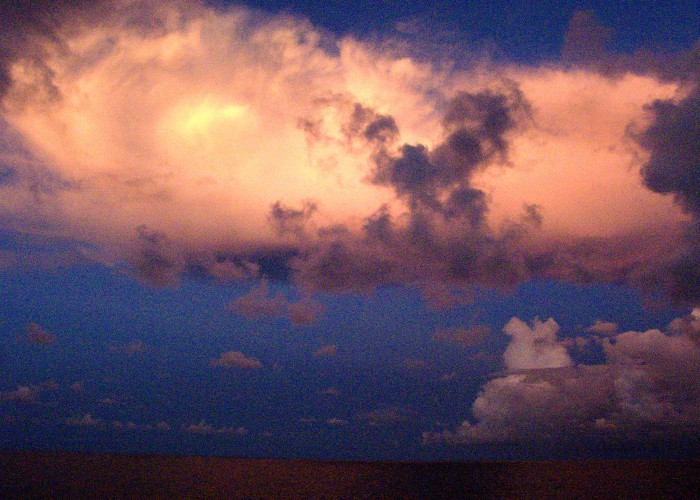
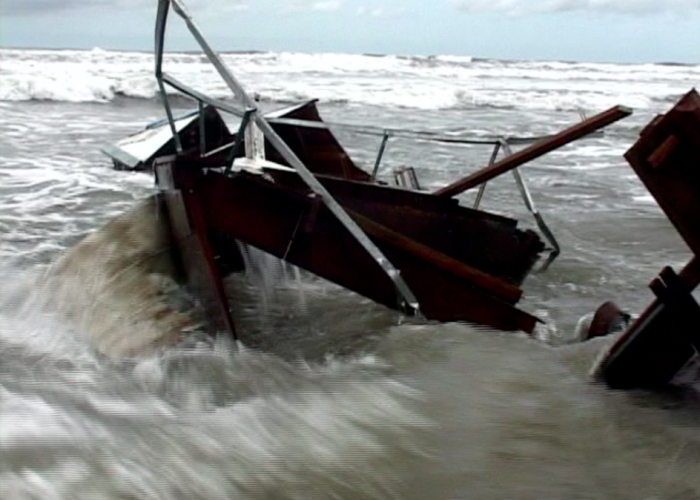



 sending...
sending...